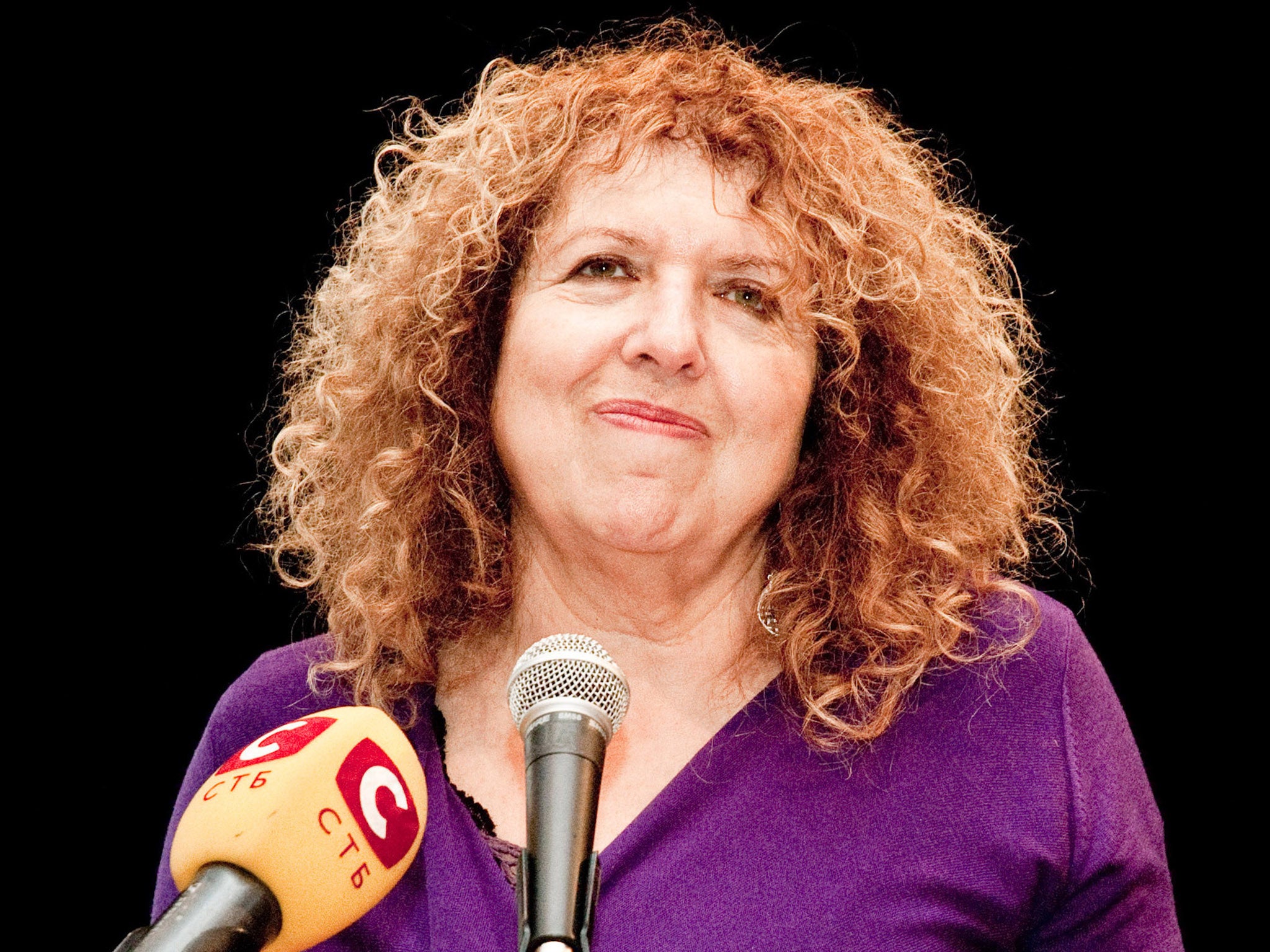Elyse Dodgson: Visionary of the theatre who brought the world to the Royal Court’s stage
From her base on the edge of central London, the former actor and drama teacher encouraged the work of promising playwrights around the world

Your support helps us to tell the story
From reproductive rights to climate change to Big Tech, The Independent is on the ground when the story is developing. Whether it's investigating the financials of Elon Musk's pro-Trump PAC or producing our latest documentary, 'The A Word', which shines a light on the American women fighting for reproductive rights, we know how important it is to parse out the facts from the messaging.
At such a critical moment in US history, we need reporters on the ground. Your donation allows us to keep sending journalists to speak to both sides of the story.
The Independent is trusted by Americans across the entire political spectrum. And unlike many other quality news outlets, we choose not to lock Americans out of our reporting and analysis with paywalls. We believe quality journalism should be available to everyone, paid for by those who can afford it.
Your support makes all the difference.In breaking down cultural, social and linguistic barriers, Elyse Dodgson, who has died aged 73, helped expand the vision of British theatre.
As international director at the Royal Court theatre in London, she championed writers from around the world and encouraged individual stories to be told, erasing geographical borders that had previously kept talent hidden.
She spent at least 12 weeks of each year researching and foraging for young foreign writers, helping the Royal Court bring back original plays from countries such as Ukraine, Syria and Chile.
Dodgson started off at the Royal Court in 1985, taking a significant pay cut to become director for Young People’s Theatre.
It was 11 years later that she landed her career-defining position, reviving the theatre’s international reputation and promoting an even more outward-looking approach to help develop overseas writers.
With the support of artistic director Stephen Daldry, one of five occupants of the post she worked with, Dodgson and the Royal Court hosted their first international residency in 1993, fully funded for the individuals involved.
The Royal Court’s first theatre exchange was conducted in the same year – a pioneering collaboration with Germany that made the theatre a household name in Berlin. An opening international season was held in 1997, which included plays from Germany, France and Spain, as well as seminars and workshops for promising writers.
Long-term projects to develop theatre were soon popping up across the globe, often in areas hindered by war, censorship and a lack of contemporary theatre. Amazingly, Dodgson took the Royal Court’s initiative to more than 30 countries, including Uganda, Cuba, Lebanon, Russia and Brazil.
As part of her international outlook and beliefs, Dodgson always wanted writers to create in their mother tongue – it was for that reason the Royal Court employed translators for the first time. Those key individuals became an integral cog in the theatre’s ever-advancing international department.
One of her most successful collaborators was Vassily Sigarev, a Russian writer whose play Plasticine was a major success, and went on to become part of the Royal Court’s international playwrights season in 2002.
He secured the Evening Standard award for most promising playwright. Elena Gremina was another Russian playwright inspired by a meeting with Dodgson – a woman who went on to become a formidable force in Russian theatre.
Those triumphs were the direct result of Dodgson’s impact in Russia – a country the Royal Court started operating in 19 years ago. By collaborating with a group of largely unknown writers, Dodgson played her part in Russia’s playwriting revolution, inspiring individuals to express themselves in a way meaningful to them.
It is just a sample of the grassroots nature of Dodgson’s work, something that rightly earned her an MBE in 2010, for services to international theatre and young writers overseas, and the Young Vic award in 2004. She is survived by her children Matthew and Tasim, as well as her three grandchildren.
The daughter of Jewish immigrants from Eastern Europe, Dodgson was born in New York and grew up in Brighton Beach, Brooklyn. Her mother’s roots were Lithuanian and her father’s family was from Ukraine, then part of Austria-Hungary. Later in life she visited Ottynia, the hometown of her father, and was welcomed with open arms.
Her career in theatre began as an aspiring actor and she first moved to Britain to train at Guildhall in 1966, already with a keen knowledge of the mythical Royal Court. In fact, it was on her very first day in England that she headed straight to Sloane Square to watch a revival of Ann Jellicoe’s The Knack.
She soon married John Dodgson, and they had two children together before she became a drama teacher – an occupation she thrived in.
Her time in education included a project called Motherland at Vauxhall Manor girls’ school, whose pupils were 85 per cent afro-Caribbean. This verbatim initiative, looking inwardly at immigrant society, included daughters asking their mothers how they came to England. The Royal Court’s then artistic director, Max Stafford-Clarke, was one of the people to see it, and he would later hand Dodgson her first role with the institution.
It was from this theatre on the edge of central London that Dodgson’s work ethic and spirit inspired so many. However, her passion extended to all corners of the world and it was for this that she’ll be most remembered. As per the Royal Court: “For now, we’ll leave you with Elyse’s revolutionary battle cry: “¡Hasta la victoria siempre!”.
Elyse Dodgson, theatre director, born 26 August 1945, died 23 October 2018
Join our commenting forum
Join thought-provoking conversations, follow other Independent readers and see their replies
Comments